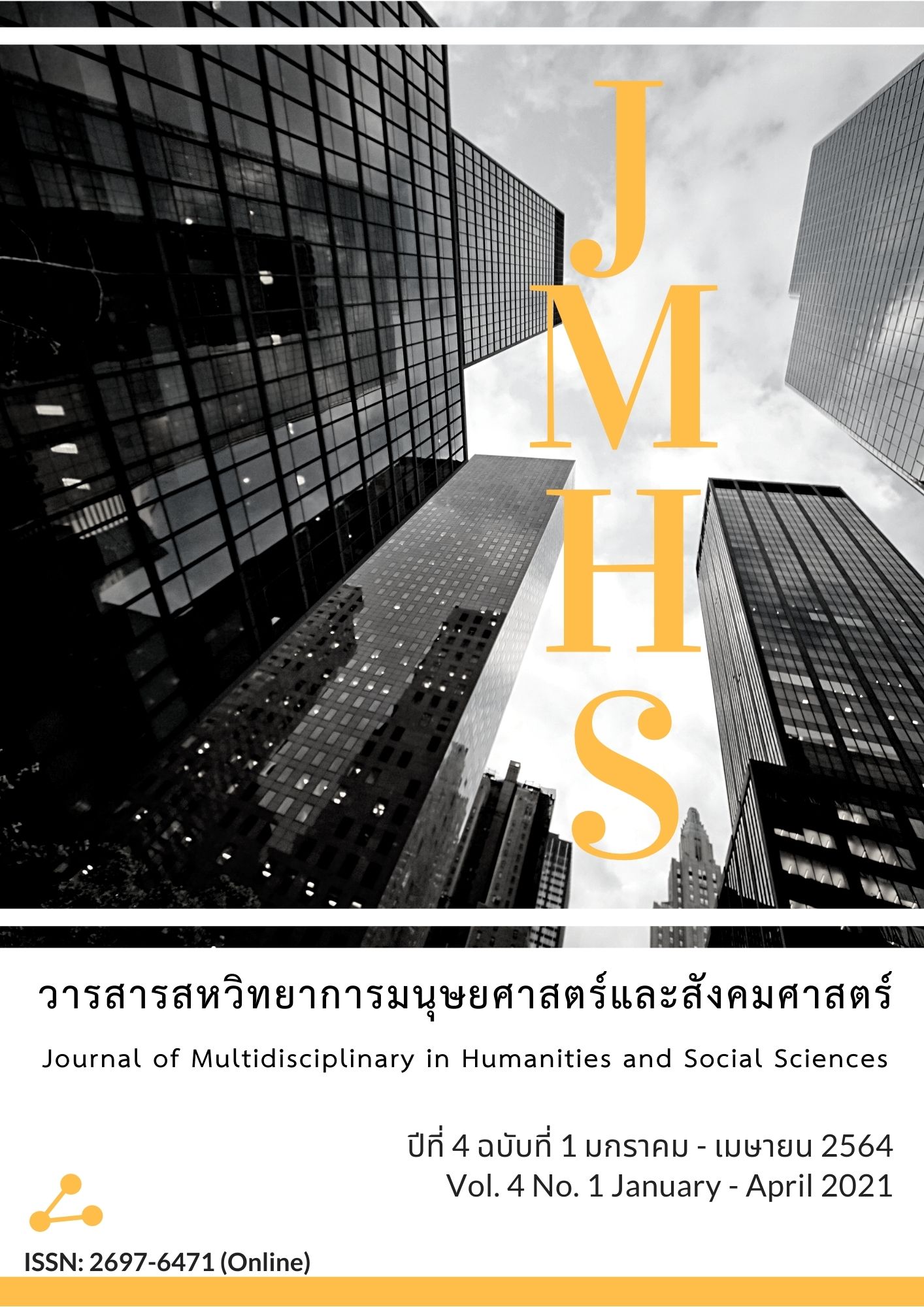Using the principle of the injured party violates in the Civil and Commercial Code, Section 223 instead of the last opportunity rule according to English law
Main Article Content
Abstract
The purposes of this research were 1) to study the Contributory Negligence with the calculation of compensation arising from contractual liability and other sources of debt under section 223, Civil and Commercial Code, which focuses on the calculation of compensation by considering the damage that each party has caused and related enough to be deductible to calculate the compensation that is accurate to the legal and actual damage, and 2) to consider article 223 for calculating of compensation instead the last opportunity rule. This qualitative research study in text both Thailand and aboard also judgment. Follow the objective, however, in the case that the injured party has a fault, there are still problems to consider, namely bringing the final person who is responsible for protecting the result or the last opportunity rule applies to the case where the injured person is responsible for causing damage. This principle is used in England and later changed to the Contributory Negligence principle because it corresponds to the fact and is more in line with the damage each party has caused. But in the judgment of the Thai court, it appears that principles have been applied. Therefore, causing the interpretation of the victim to be misled causing damage inconsistent with the proportion of damage each side caused resulting in the incorrect calculation of compensation as well as creating a burden to any party that is too much It is more useful to replace the victim as per section 223 by the Contributory Negligence.
Article Details
Views and opinions appearing in the Journal it is the responsibility of the author of the article, and does not constitute the view and responsibility of the editorial team.
References
Kraiwichian, T. (2013). Interpretation of Thai law based on English law Some problems and obstacles and how to solve them. Bangkok: The Secretariat of the Senate.
Phakdeethanakun, C. (2015). Explanation of the Civil and Commercial Code On the effects and the suspension of debt. (2nd ed.). Bangkok: Krung Siam Publishing Company Limited.
Pramoj, S. (2017). Civil and Commercial Code on Juristic Acts and Debts Book 2 (Final Part). (3rd ed.). Bangkok: Winyuchon.
Sawangsak, C., & Boonbamrung, W. (2000). Interesting information about registrationonthe laws of Thailand and Thailand. Bangkok: Nititham Publishers.
Thirawat, D. (2017). Debt Law: General Principles. (5th ed.). Bangkok: textbook and teaching materials project Faculty of Law, Thammasat University.
Vayuphap, P. (2012). Explanation of the Civil and Commercial Code regarding Debt. (9th ed.). Bangkok: Phonsiam Printing (Thailand).


